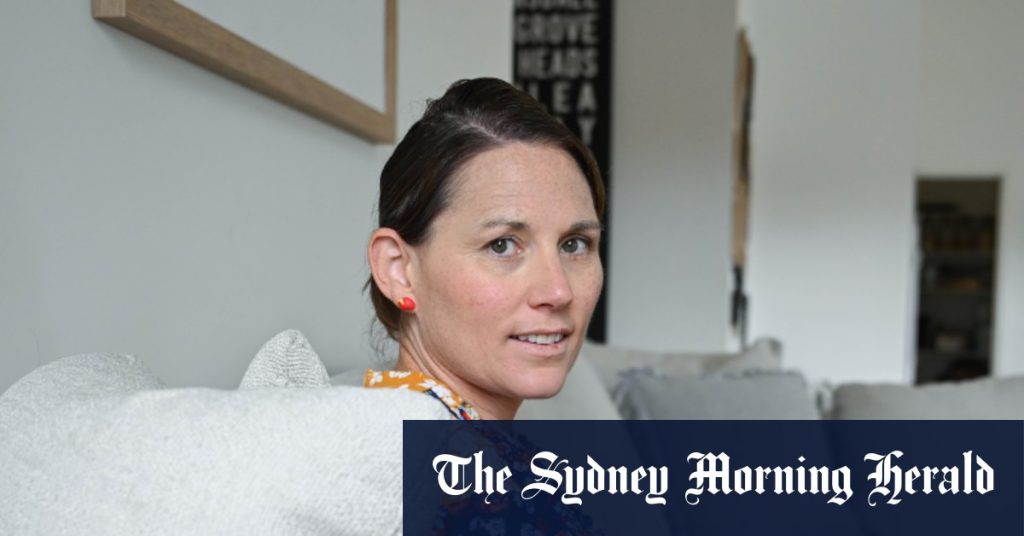Summarize this content to 2000 words in 6 paragraphs Scientists don’t yet know what causes the debilitating condition, although many people say their symptoms start or significantly worsen after an infection. There is no known cure.In his first interview about the research, Melbourne University’s Dr Christopher Armstrong said the hope was to eventually take the algorithm from the lab to GP offices around the country to help doctors make speedier diagnoses.To date, medical professionals have to spend months ruling out similar conditions.“It’s really there to help provide confidence,” Armstrong said.“The idea is that you could take any blood sample, run it through these machines that created the data, take that readout and put it through this algorithm, and it just reads out immediately where they score. It ends up being a percentage chance that they have ME/CFS.“Therefore, you can get them on that treatment pathway faster, or at least being told how to manage their disease.”Because the research relied on biological samples from the UK, the next step is to run the algorithm on Australian data to see if the results are replicated. If successful, Australian GPs could be using the tool before the end of the decade.“If everything goes well, it could be two years,” Armstrong said.Medical scientist Adrienne O’Neil still remembers crying in the office of her non-regular GP in August 2023 after he suggested her symptoms were the result of ill mental health.“I was clearly so distressed about my life evaporating before my eyes,” O’Neil said.“I had a five-month long significant headache. It felt like my brain was almost too big for my head. I got glasses, I reduced screen time, I drank more water. I wasn’t able to function.“He said, ‘Take your mask off. You need to breathe, you need to go see a psychiatrist.’ I needed to take medical leave [due to my neurological condition]. His response was to psychopathologise.”O’Neil now works part-time to help manage her symptoms. She says a machine-learning tool to help GPs make a diagnosis would be an incredible breakthrough.Credit: Joe ArmaoDays before, O’Neil – who had been a co-director of Deakin University’s Food and Mood Centre – had finally been diagnosed with ME/CFS after enduring symptoms for 11 years. She hates to think what the experience would have been like without a science qualification or as many health contacts.“I had been to every health professional under the sun, from cardiologists to neurologists to a whole host of GPs.“I do wonder if I only got that diagnosis because I wound up in such bad health after my [first] COVID infection. Before that, it was a whole lot of heterogeneous symptoms.”O’Neil now works part-time to manage her symptoms, but she still experiences “crashes” – the onset of debilitating exhaustion.“The other day, I drove to Melbourne and back and ended up in bed for a week.”The medical scientist says a machine-learning tool to help GPs more easily diagnose ME/CFS would be an incredible breakthrough. She’s hopeful that things are moving in the right direction given the rise of flexible working patterns and greater awareness of debilitating fatigue after COVID.Anne Wilson, the chief executive officer of Emerge Australia – the peak body for people living with ME/CFS and long COVID – agrees that a program that could identify ME/CFS with a high level of accuracy would be a “game changer” for patients.“People with ME/CFS have been left out in the cold for decades,” Wilson said.“These same people are trying to get on to the NDIS, and because they can’t get a proper diagnosis … they get knocked back.“So this would be a game changer. Finally, patients would have a diagnosis that would open the gateway to other forms of support that they need, and finally, the gaslighting would cease.”Wilson said a lot of ME/CFS symptoms – such as sleep dysfunction, cognitive difficulties, headaches and dizziness – were shared with long COVID, a possible link that requires more research.“The main difference is people with long COVID will largely, over a period of time, become better, whereas people with ME/CFS rarely recover. There is less than a 10 per cent chance of people with ME/CFS returning to pre-illness functioning.”LoadingArmstrong and his colleagues’ research was funded by Open Medicine Foundation Australia, which largely operates on private donations and has a presence in the United States and Canada.While other scientists have tried to find the “jackpot” – a biomarker identifying ME/CFS outright – the Melbourne researchers used what’s called a differential diagnostic, which involves analysing a long list of clinical features to find a combination of markers that separate MC/CFS from similar conditions.Open Medicine Foundation Australia’s managing director Rebecca Morse said this was what was particularly exciting about the project, given a simple test for ME/CFS remained elusive.“The disease presents differently for each individual,” Morse said.“So that’s why this strategy of looking broadly makes a lot of sense. We’re excited to be able to continue supporting them.”Start the day with a summary of the day’s most important and interesting stories, analysis and insights. Sign up for our Morning Edition newsletter.


